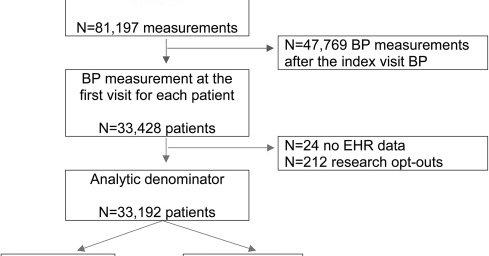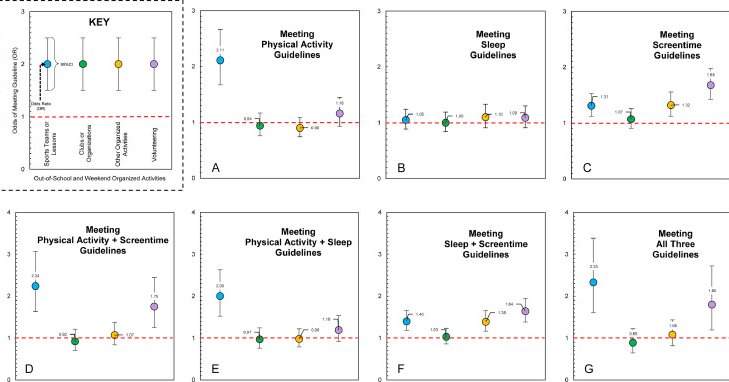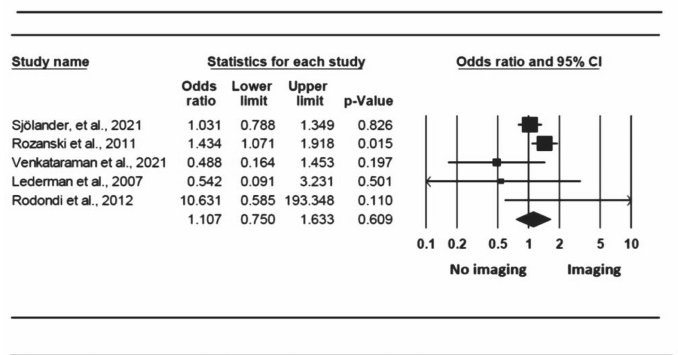
Matthew L. Boulton
@AJPM_Editor
Followers
249
Following
337
Media
8
Statuses
424
Editor-in-Chief, Am J Prev Med; Senior Associate Dean; Pearl L Kendrick Collegiate Professor of Global Health; Professor of Epidemiology & Internal Medicine
University of Michigan
Joined July 2012
Breaking the cycle of vulnerability: Study in @AmJPrevMed identifies modifiable elements to build #communityresilience and improve health https://t.co/F1RTqy0XmB
#publichealth
@AJPM_Editor
@APTRupdate
0
1
1
Cardiometabolic Risk in Pediatric Patients with Intellectual and Developmental Disabilities - @AmJPrevMed
ajpmonline.org
Intellectual and Developmental Disabilities (IDD) have been associated with high cardiometabolic risk in adults, but there is little data on youth. This study describes the prevalence of cardiometa...
2
2
7
Prof @DrRyanJWatson published on arrest history and health among U.S. sexual and gender minority youth in the American Journal of Preventive Medicine. Read here: doi:10.1016/j.amepre.2024.06.003 @UConnCLAS @UConn_InCHIP @AmJPrevMed
0
2
9
💡 thanks @PennLDI for covering our study in @AmJPrevMed, which highlights disproportionate unmet medical + mental health care needs among children & youth exposed to neighborhood violence. CC @Eugenia_South @tylerwinkelman @AditiVasan @KevenCabreraMD @HHCJ_Lab @PennUHL_
A new study from LDI Fellows @AditiVasan and @Eugenia_South digs into the connections between exposure to neighborhood violence and unmet health care. Cost-related barriers to care were prominent, but pandemic-era policies may have helped. Read more:
1
3
11
Sick of this yet? There's more! Our preprint in @AmJPrevMed shows these inequities translate into what patients actually pay OOP for prevention (which should be free)! tl;dr: even *conditional on a bill,* disadvantaged groups have larger bills! Paper: https://t.co/7GFvNwxB7d
Excited to share new research w/ @michalhorny + @OliviaYu_ out today in @JAMANetworkOpen! We study insurance denials for preventive care. Denials are 2-3x more likely among disadvantaged groups, and rarely resubmitted, leaving patients on the hook even for preventive care. (1/2)
0
4
13
#Cannabis use linked to workplace absenteeism. New study shows that individuals with recent and frequent cannabis use and cannabis use disorder (CUD) are disproportionately prone to workplace absenteeism. https://t.co/OAltjrNZsx
@AmJPrevMed @omarelshahawy @JosephPalamar
0
2
7
Now published at @AmJPrevMed ! In a nat. experiment -- K. Haglin and I find that increases in Universal Basic Income (UBI) payment generosity can have a positive effect on health-seeking behavior. See 🧵 below! https://t.co/kPUn1DETgG
NEW WP from Kathryn Haglin & I: We provide quasi-experimental evidence from a naturally-occurring experiment that Universal Basic Income (UBI) payments are associated with increased primary care seeking behavior. 🧵 https://t.co/wxYKJEacXA
3
8
23
1/ New in @AmJPrevMed: #cannabis use linked to workplace absenteeism. Our study using NSDUH data shows recent cannabis use and cannabis use disorder (CUD) associated with increased work absences. @letimueller @omarelshahawy @JosephPalamar @UCSDMedSchool
https://t.co/91FF1RNf8T
2
7
9
New study out today in @AmJPrevMed. We investigated out-of-school and weekend activities that contribute to meeting 24-hour movement guidelines among US adolescents. Alongside sports, community service/volunteering was a standout! https://t.co/WuocThKI4D
ajpmonline.org
The purpose of this study was to explore associations between participation in out-of-school/weekend organized activities and adherence to the 24-hour movement guidelines among US adolescents.
2
10
38
Sex differences in Cardiovascular-kidney-metabolic relationship. ⬆️risk of premature 💔 with worsening kidney function. Risk ⬆️⬆️among young women with eGFR<30 mL/min after controlling for risk factors. It was a delight to mentor ⭐️aspiring cardiologist Dr. Shin. @AmJPrevMed
0
6
25
Our September 2024 issue is out today! Check out the full article listing at https://t.co/yi4F9JYVnm Thank you to all the authors and reviewers who made this issue possible.
0
1
3
Led by @JohnWAyersPhD, #UCSD scientists at #qualcomminstitute, @ucsdmedschool and @ucsdactri published a new method in @AmJPrevMed to extract meaningful #publichealth info from social media, in this case vaping behavior from initial use to quit attempts.
0
4
5
Statistical analysis in @AmJPrevMed reveals that stricter #alcoholpolicies are associated with reduced #homicides in the US. A nationwide increase in policy restrictions could result in 1200 fewer homicides annually. https://t.co/XprUiDKrpc
@APTRupdate
0
3
7
Our August 2024 issue is out now. See the full article line-up at https://t.co/v5KhueCOyj Thank you to the authors and reviewers who made this issue great!
0
1
2
📢New article online today in @AmJPrevMed with a fantastic team led by @testaalex! Those who live in historically redlined areas (and people who move into them) have a greater risk of violent victimization from adolescence through adulthood. 📢 https://t.co/iwimVQun6H
0
4
7
"Among 27 studies, 16 found that social safety nets were protective against child maltreatment" [in the US] New in @AmJPrevMed by @TiaPalermo @PatriciaLoganG2 @smlima_mph Grooms & @denise_goblue cc. @ubuffalo @2pelab
https://t.co/Du3mfe6ZiO
1
3
9
Our July 2024 issue is out today! View the full table of contents here: https://t.co/fJ15tsJrBX Thank you to all the authors and reviewers who made this issue possible!
0
1
1
Excited to see this review article on cardiovascular imaging, medication use, and adherence from my PhD work published in the American Journal of Preventive Medicine! @AmJPrevMed Huge thanks to all my co-authors @LCBlekkenhorst @stanley_mandy
https://t.co/AROf0hz8pb
ajpmonline.org
Cardiovascular imaging results offer valuable information that can guide health decisions, but their impact on medication use and adherence is unclear. This systematic review and meta-analysis aimed...
0
2
5
What happened after the #VeteransCrisisLine went from ten digits to three? We took a look at caller contact volume & caller characteristics after the 988 rollout. Learn more here https://t.co/Nok4KugcW8
#VisualAbstract
0
3
6




















